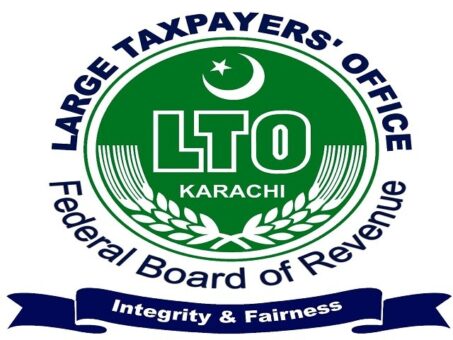ISLAMABAD: Tax offices have highlighted anomaly in extending concessionary rate of tax or exemption under Section 148 of the Income Tax Ordinance, 2001 to imported goods at customs stage.
Large Tax Offices (LTOs) Islamabad and Karachi pointed out the anomaly and advised the Federal Board of Revenue (FBR) to rectify as taxpayers were suffering.
Large Taxpayers Office (LTO) Karachi in a communication sent to FBR HQ stated that only FBR had powers under Section 148 of the Income Tax Ordinance, 2001 to reclassify goods under Part III of Twelfth Schedule. “In this condition the power of commissioner Inland Revenue to issue reduced rate certificate under SRO 715(I)/2020 dated August 12, 2020 is legally valid?”
The LTO Karachi said that the FBR issued SRO 715(I)/2020 through which Rule 40E was inserted to Income Tax Rules, 2002 and the requirement had been set for the taxpayer desirous of seeking reduced rate certificate on goods classified in Part III of the Twelfth Schedule to the Ordinance.
The LTO Karachi said that even issuance of the rule the commissioner cannot issue reduced rate certificate because there is no statutory or enabling provision in the statute itself (substantive law) for issuance of reduced rate certificate to the goods classified in Part III of the Twelfth Schedule, even if import is being made by the industrial undertaking.
Explaining the background, the LTO Karachi said that before amendment brought in by the Finance Act, 2020, Section 148(7) of Income Tax Ordinance, 2001 provided the tax to be collected on import of raw material or plant and machinery for own manufacturing use by Industrial Undertaking shall not be Minimum Tax or Final Tax as the case may be.
To this effect, earlier reduced rate certificate on import of Plant and Machinery for Industrial Undertaking was governed under the SRO 947(1)/2008 which now stands rescinded and the facility of exemption on plant and Machinery vide SRO 1020(1)/2020 dated 8th October stands withdrawn. Similarly, exemption under section 148 on import of in-house use by industrial undertaking was governed by Clause 72B of Part-IV of the Second Schedule to the Income Tax Ordinance, 2001 which has been omitted by Finance Act, 2020.
The LTO Karachi said that section 148 has been amended by Finance Act, 2020, whereby tax to be collected u/s 148(1) on imports has been made Minimum Tax by amending Section 148(7) of the Ordinance except in the case of “Industrial Undertaking” importing goods subject to collection of Import Tax at 1 percent or 2 percent with respect to goods specified in Part-I or Part-II of the Twelfth Schedule to the Ordinance.
“ The Plant and Machinery being capital goods have already been classified and mentioned in Part-I of the Twelfth Schedule to the Ordinance which is subject to reduce rate of withholding. Similarly, Raw Materials specified in Part-II of the Twelfth Schedule are subject to 2 percent of advance tax collection at import stage under section 148. However, goods specified in Part-III of the Twelfth Schedule to the Ordinance are subject to advance tax collection on import at 5.5 percent.
“This tax to be collected under Part-III of the Twelfth Schedule at 5.5 percent is minimum tax even if import is made by Industrial Undertaking for its own use. As sub-section 7 of section 148 states that tax required to be collected under section 148 is to be minimum tax except in case of import of goods by Industrial Undertaking for its own use on which tax to be collected is at the rate if 1 percent or 2 percent as the case may be.”
The tax office further informed that Section 159 of the Ordinance only grants exemption in three conditions: (i) where amount subject to withholding is exempt from tax; (ii) where amount subject to withholding tax is reduced rate; (iii) or where taxpayer is entitled for 100 percent tax credit under section 100C of the Ordinance.
The LTO Karachi presented its view that commissioner is not competent or authorized under Section 148 to issue any reduced rate certificate with respect to goods specified in Part III of the 12th Schedule to the Ordinance unless the import is made by taxpayer whose income is exempt.



